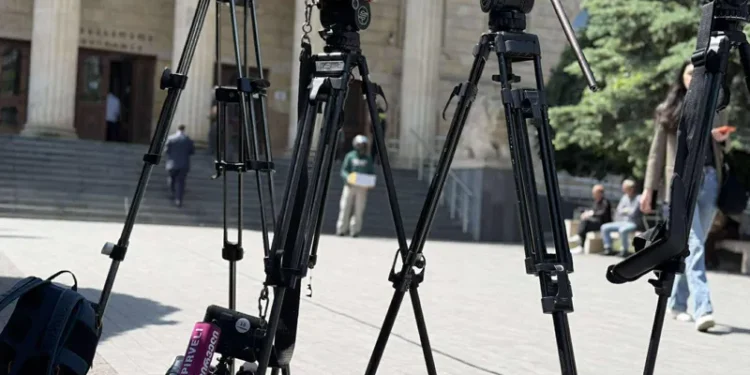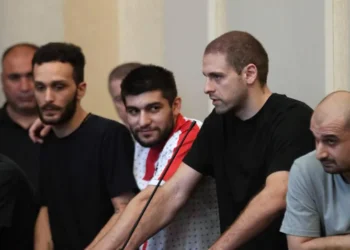Based on the latest amendments to the Law on Common Courts, only the High Council of Justice will have the authority to decide on photo and video recordings during court sessions. This replaces the earlier version of the draft law, which allowed such recordings based on a judge’s motivated decision.
Archil Gorduladze, Chairman of the Legal Issues Committee and one of the authors of the bill, stated that the court itself will have the right to disseminate relevant footage. He emphasized that the aim is to protect the court process from media interference, which, he claims, often seeks to turn trials into spectacles.
“The goal of politically influenced media is to disrupt court proceedings. The courtroom should not be a stage for performances. It exists to deliver justice and ensure the protection of rights in a calm, adversarial setting,” Gorduladze said.
The amendments stipulate that photo and video recordings will only be permitted if the High Council of Justice makes a specific decision for each case. Meanwhile, public access to information will still be ensured, as courts will have the option to release selected footage. Interviews with parties involved in the case can still be conducted outside the courtroom.
Gorduladze also highlighted that the High Council of Justice holds a constitutional mandate to make decisions regarding the organization of the judiciary. “This does not constitute interference in judicial proceedings,” he stated.
For context, the initial draft allowed video and audio recordings only upon a substantiated petition and with a judge’s approval. The updated version shifts that authority entirely to the High Council of Justice. The draft also provides for courts to release photos, videos, or films from proceedings, provided it does not conflict with the law.














